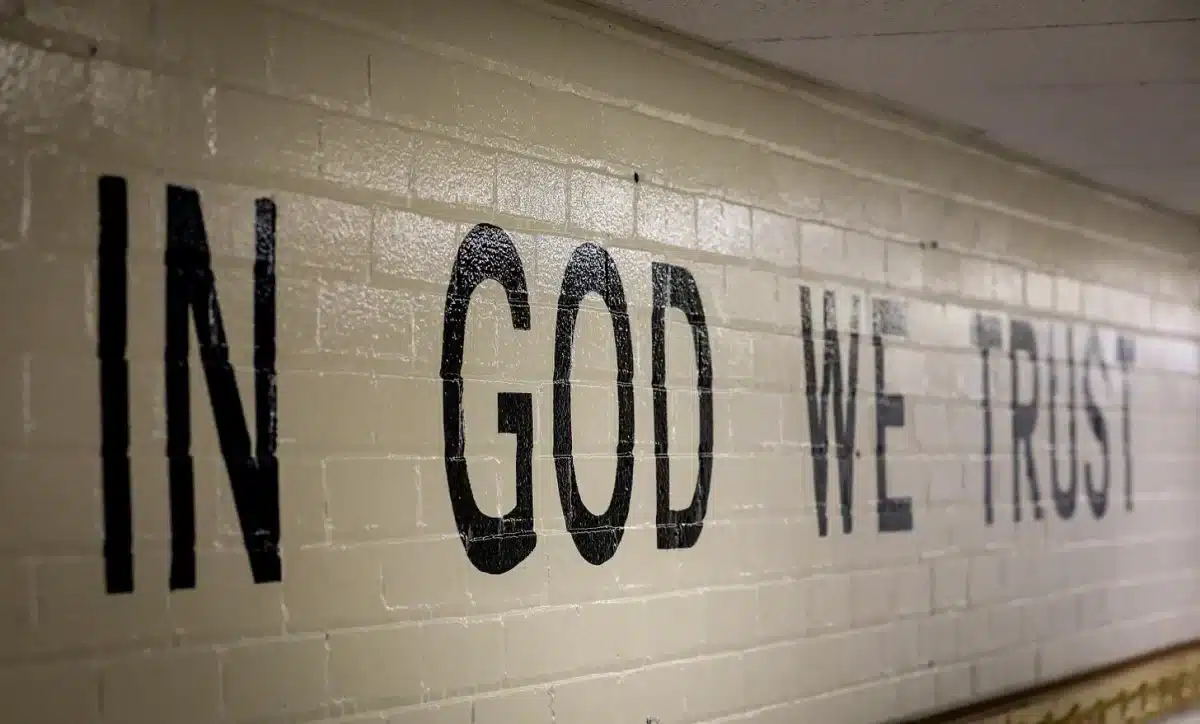
With all the problems facing the nation, U.S. Sen. Josh Hawley of Missouri filed a new bill last week to fix what people have been clamoring about. Signage on federal buildings. Wait, that’s not what has you worried?
The Republican senator who offered fist-pumping support for the pro-Trump mob outside the Capitol on Jan. 6, 2021 (before running away during the insurrection), wants to require every federal building across the country to post the words “In God We Trust.” And then our nation will be saved!
“The In God We Trust Act will ensure that the federal government — as well as the American people for whom it works — never forgets the ultimate source of the liberty and prosperity this country enjoys,” Hawley explained in a press release about the bill. “As the United States prepares to celebrate its 250th birthday, this bill would restore faith to its rightful place in the halls of government.”
For Hawley, who admits to advocating for Christian Nationalism, the new signs are a holy mission — albeit one based on a bit of faulty history since the phrase’s life as the national motto is not connected to the country’s Semiquincentennial next year. The phrase has instead been the motto for less than 70 years. Hawley also specifically connected his bill to a new White House initiative urging Americans to gather each week in groups of 10 to offer nationalistic prayers for an hour.

Sen. Josh Hawley (R-Mo.) gestures toward a crowd of Donald Trump supporters gathered outside the U.S. Capitol to protest the certification of Joe Biden’s electoral college victory on Jan. 6, 2021. (Francis Chung/E&E News and Politico via AP)
So Hawley wants “In God We Trust” posted “in a place of prominence” on each of the federal government’s “public buildings.” That does not include military bases but does include federal office buildings, post offices, courthouses, border inspection facilities, warehouses, record centers, telecommuting centers, and more. According to the U.S. General Services Administration, that could total more than 8,000 buildings. Is DOGE still looking for government spending to cut?
Ultimately, Hawley’s bill is a Christian Nationalistic attempt to conflate American and Christian identities, marking government buildings with a religious declaration. But it comes with bad history and bad theology. So this issue of A Public Witness looks back at the real history of our “godly” national motto before considering the problems with such a governmental phrase today.
God Bless Our Wars
In justifying his new bill, Hawley argued, “Our national motto goes all the way back to the days of President Lincoln.” That’s a stretch. While the phrase made an appearance during the Lincoln administration, it was not in any way considered the national motto then. That’s a bit like claiming the Caesar salad goes all the way back to the days of the ancient Roman rulers when it was instead created by chef Caesar Cardini in 1924.
What happened in the days of Lincoln was a push to put God on coins during the Civil War, ultimately leading to the phrase “In God We Trust” being inscribed on coins but not currency (which led some people to joke, “In God we trust, all others pay cash”). As Beau Underwood and I detailed in Baptizing America: How Mainline Protestants Helped Build Christian Nationalism, the push to put God on Mammon came as an attempt to force God to help the North win the war.

The rest of this piece is only available to paid subscribers of the Word&Way newsletter A Public Witness. Subscribe today to read this essay and all previous issues and receive future ones in your inbox.






